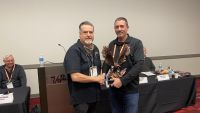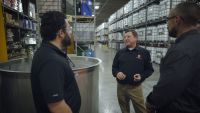September 14, 2009 7:48 AM CDT
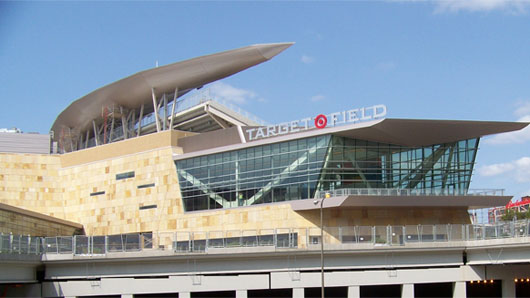
The Mason Contractors Association of America (MCAA) recently talked with Dick Dentinger, Vice President of B&D Masonry, about the history of his company, challenges they've faced, and the future of the masonry industry.
MCAA: Tell us about the history of B&D Masonry.
Dentinger: My brother Bill had been working for my parent’s masonry business (Bill Dentinger, Inc.) since the early 1980’s. After a brief adventure in Radio Advertising, I came back to the family masonry business full-time in 1990. My brother and I were charged with handling the operations in St. Paul, Minnesota. It was an ideal situation in many respects as we essentially were a satellite division of the Milwaukee-based Bill Dentinger, Inc. In the Southeastern Wisconsin market our parents already had an impeccable reputation. But in St. Paul we were pretty much treated as invaders from another market. Bill and I struggled for years to build a reputation as a “local” mason contractor and not an out-of-towner that was just stopping by to raid some work. It’s a Midwestern Packers-Vikings thing in many ways. While it was a difficult task, it allowed us to learn on our own while still having the guidance and horsepower of our Milwaukee operations available to us when we needed it. Over time we built our own reputation as a reliable local source for quality masonry work.
In 2003, when my parents decided to begin the process of retiring, Bill and I spun-off the St. Paul operations of Bill Dentinger, Inc. into a new company, B&D Associates, Inc. (B&D Masonry). We focus on institutional, municipal, and commercial work with a particularly sound reputation on stone work.
MCAA: What do you think has been the key to your company's success?
Dentinger: We’ve built a reputation locally as a quality mason contractor. We’ve done so while staying focused on what we’re good at. Without question we are a “Ma & Pa” sort of family run business. But, due to our training from our parents as well as years of networking through our activity within MCAA (non-competitor mason contractors from other states) we have built an operation that can handle difficult or large commercial and institutional work. As such, we usually get one or sometimes two large projects and then dozens of small projects annually. It allows us to keep our overhead low. In addition, the people we respect most in the industry have always preached to “maintain a reasonable and slow growth in volume”.
MCAA: What are your three biggest concerns in keeping your company successful?
Dentinger: Well that question requires an entirely different set of answers in the economy we all find ourselves in today. I wish my answer had only to deal with the now trivial sounding problems of three and four years ago. But in the bloodbath that we find ourselves in with the economy of today, I’d say our three biggest concerns are:
1) Struggling with an irrational bid-market. All sectors of construction are getting desperate and the bidding is all over the place. More than ever before we are all looking for that “one job” to buy some time before the next and due to the slim pickings, we are all bidding lower than we ever would have since I’ve been doing this… and its still not low enough! Even on negotiated work. It’s a dicey situation and we all need to be careful not to be completely irrational on bid day. My dad always told Bill and me that, “while no work is unpleasant… BAD work can kill you.” We’ve had bad work before and we know from experience that we wouldn’t want to have that burden during this current economy.
2) Being involved in a project or with a contractor that has financing issues. This is another issue that wasn’t as high on our radar a few years back. But until the banks get comfortable again with the economy we all have no choice but to be much more aware of the financing status of the projects we work on as well as the financial status of the generals we are working for.
3) Protecting and growing masonry’s market share. Sadly, while we are burdened with the responsibilities of running a profitable business during trying times, and while the two items listed above may be on our minds, we still need to work to shore up masonry’s market share. Bill and I choose to handle this by being active in both our local and national masonry associations. The efforts of MCAA are critical to this effort.

MCAA: You are currently working on the new stadium for the Minnesota Twins. What are some of the challenges you’ve faced on this project and how did you overcome them?
Dentinger: We were hired by M.A. Mortenson Construction on the Twins Ballpark project for most of the CMU on the project as well as the hand-set stone. It was an exciting job to work on and challenging in many ways.
While we like to work on large projects, this one was something of a monster. The largest concern from day one was on time delivery as the opening day pitch was not going to be moved.
In addition, the project was essentially on the edge of downtown Minneapolis and placed along side an existing parking ramp, between two bridges and an interstate highway on the other side. It was complicated further with an existing railroad track on the site. All of the material had to be brought into the site through a 40’ opening underneath one of the bridges! The project had to be constructed from one end of the Ballpark and then work our way out due to these very tight site conditions. All of those issues faced with multiple level work and large crews made it an adventure to say the least. Fortunately or perhaps unfortunately, since there really wasn’t any other work around town for us to chase, we gave nearly 100% of our company’s efforts and focus solely on this project which helped to ensure that it was a successful experience for us.
MCAA: What advice would you offer a budding mason contractor?
Dentinger: Before you jump in, I would spend considerable time and effort researching your masonry market. Really figure out the needs for the area. What sector looks the most welcoming to another competitor? Commercial? Light commercial? Large industrial work? Restoration? Residential? High-end residential? Find out where you have the best odds and stay focused on that niche. Work hard to first develop a small customer base and become “their mason” of choice. In addition, I would visit with some people who already run their own construction company (doesn’t have to be a mason contractor) and make certain you have a keen knowledge of what it takes to finance your new company. Keep your overhead down and don’t be preoccupied with volume.
MCAA: What do you feel is the biggest misconception about the masonry industry?
Dentinger: We are of the opinion that masonry is perceived to be expensive and not flexible. That is incorrect. Masonry is competitive and more flexible to design than ever before since the many new products and options related to our material.
MCAA: What would you do to change that misconception?
Dentinger: Educate the architectural community and “update” them on our industry. Masonry has changed dramatically and if we are really sharp we would try harder to get in front of the young architectural students on campus. It’s up to us to get out there in front of those that have a hand in design at the front lines.
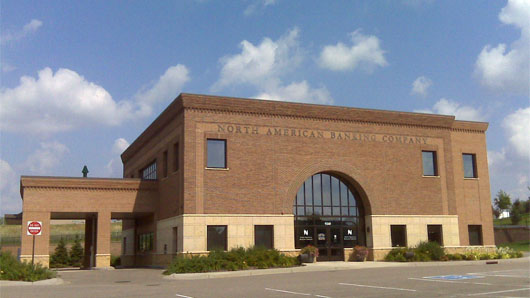
MCAA: What do you feel is the industry's biggest challenge in the near future?
Dentinger: We need to train our workforce and in-fact keep our contractors trained and current as to the proper methods and use of masonry. And as stated above, we need to work to train the engineers and architects about the same.
MCAA: Where do you think the masonry industry is going to be 10 years from now?
Dentinger: We believe that masonry veneers will make a comeback and be a more popular use in design. In addition, due to the constant threat of competing back-up materials and the misconceptions discussed above, the average mason contractor will likely have to find other ways to come up with the volume they need to run their business. Most likely that will be through more less traditional masonry systems as well as other creative sources of revenue.
MCAA: What do you think will be the masonry industry's biggest competitor in 10 years?
Dentinger: At the very least, masonry will always be a top shelf choice for dressing a building up. It’s beautiful, strong and timeless in design. However, we need to stop standing pat while other products keep pecking away at our percentage of the market.
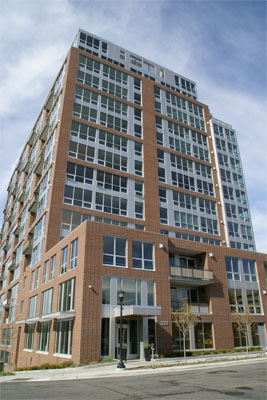
MCAA: What do you feel are the most critical issues you'll face with future government regulations?
Dentinger: Being and/or going green as it were. It’s very difficult for the small to medium sized contractors to stay current on the ever changing aspects of going green and OSHA regulations. The more they stack on our plate the more we are being forced to add overhead and personnel to handle this burden. It can be overwhelming. As business owners there are only so many hours in a week and with more and more regulation there is more and more paperwork that forces us to change our overhead structure and therefore our business plan.
MCAA: Which group do you feel has the bigger impact on masonry's future - architects, engineers or general contractors?
Dentinger: While they all play a role, it would seem to me that we underestimate the value in selling masonry to the General Contractors that are involved in Design/Build and negotiated work. These players sit at the table with the owners while they strategize how to design the building that satisfies the needs of the owner. It makes sense that efforts to work these General Contractors will turn work towards masonry which in turn will help to set trends for other copy-cat builders. In addition, the design firms will then be spending more time in their offices utilizing masonry in their projects.
MCAA: What do you like most about being a member of MCAA?
Dentinger: We need to be trustees to the industry we choose to make a living within. It only makes sense to do so. As such, we’re members of MCAA. If nothing else we need to at least use the action of sending in our dues check to participate in the stewardship of our industry.
We appreciate all of the efforts of MCAA over the last 60 or so years, but in particular, Bill and I are excited about the active lobby effort in Washington D.C. In addition, we have made a conscious attempt to be involved at MCAA simply for the networking value. MCAA has a wealth of expertise available to us from non-competitor mason contractors in other markets. Through this relationship building, we have built up a great networking group of top shelf mason contractors that we often tap into for experience and knowledge.
MCAA: Thank you for your time.
Contractor to Contractor: B&D Masonry
Keys to success and the future of masonry

Target Field, Minneapolis, Minn. The new home of the Minnesota Twins.
The Mason Contractors Association of America (MCAA) recently talked with Dick Dentinger, Vice President of B&D Masonry, about the history of his company, challenges they've faced, and the future of the masonry industry.
MCAA: Tell us about the history of B&D Masonry.
Dentinger: My brother Bill had been working for my parent’s masonry business (Bill Dentinger, Inc.) since the early 1980’s. After a brief adventure in Radio Advertising, I came back to the family masonry business full-time in 1990. My brother and I were charged with handling the operations in St. Paul, Minnesota. It was an ideal situation in many respects as we essentially were a satellite division of the Milwaukee-based Bill Dentinger, Inc. In the Southeastern Wisconsin market our parents already had an impeccable reputation. But in St. Paul we were pretty much treated as invaders from another market. Bill and I struggled for years to build a reputation as a “local” mason contractor and not an out-of-towner that was just stopping by to raid some work. It’s a Midwestern Packers-Vikings thing in many ways. While it was a difficult task, it allowed us to learn on our own while still having the guidance and horsepower of our Milwaukee operations available to us when we needed it. Over time we built our own reputation as a reliable local source for quality masonry work.
In 2003, when my parents decided to begin the process of retiring, Bill and I spun-off the St. Paul operations of Bill Dentinger, Inc. into a new company, B&D Associates, Inc. (B&D Masonry). We focus on institutional, municipal, and commercial work with a particularly sound reputation on stone work.
MCAA: What do you think has been the key to your company's success?
Dentinger: We’ve built a reputation locally as a quality mason contractor. We’ve done so while staying focused on what we’re good at. Without question we are a “Ma & Pa” sort of family run business. But, due to our training from our parents as well as years of networking through our activity within MCAA (non-competitor mason contractors from other states) we have built an operation that can handle difficult or large commercial and institutional work. As such, we usually get one or sometimes two large projects and then dozens of small projects annually. It allows us to keep our overhead low. In addition, the people we respect most in the industry have always preached to “maintain a reasonable and slow growth in volume”.
MCAA: What are your three biggest concerns in keeping your company successful?
Dentinger: Well that question requires an entirely different set of answers in the economy we all find ourselves in today. I wish my answer had only to deal with the now trivial sounding problems of three and four years ago. But in the bloodbath that we find ourselves in with the economy of today, I’d say our three biggest concerns are:
1) Struggling with an irrational bid-market. All sectors of construction are getting desperate and the bidding is all over the place. More than ever before we are all looking for that “one job” to buy some time before the next and due to the slim pickings, we are all bidding lower than we ever would have since I’ve been doing this… and its still not low enough! Even on negotiated work. It’s a dicey situation and we all need to be careful not to be completely irrational on bid day. My dad always told Bill and me that, “while no work is unpleasant… BAD work can kill you.” We’ve had bad work before and we know from experience that we wouldn’t want to have that burden during this current economy.
2) Being involved in a project or with a contractor that has financing issues. This is another issue that wasn’t as high on our radar a few years back. But until the banks get comfortable again with the economy we all have no choice but to be much more aware of the financing status of the projects we work on as well as the financial status of the generals we are working for.
3) Protecting and growing masonry’s market share. Sadly, while we are burdened with the responsibilities of running a profitable business during trying times, and while the two items listed above may be on our minds, we still need to work to shore up masonry’s market share. Bill and I choose to handle this by being active in both our local and national masonry associations. The efforts of MCAA are critical to this effort.

Target Field, Minneapolis, Minn. The new home of the Minnesota Twins.
MCAA: You are currently working on the new stadium for the Minnesota Twins. What are some of the challenges you’ve faced on this project and how did you overcome them?
Dentinger: We were hired by M.A. Mortenson Construction on the Twins Ballpark project for most of the CMU on the project as well as the hand-set stone. It was an exciting job to work on and challenging in many ways.
While we like to work on large projects, this one was something of a monster. The largest concern from day one was on time delivery as the opening day pitch was not going to be moved.
In addition, the project was essentially on the edge of downtown Minneapolis and placed along side an existing parking ramp, between two bridges and an interstate highway on the other side. It was complicated further with an existing railroad track on the site. All of the material had to be brought into the site through a 40’ opening underneath one of the bridges! The project had to be constructed from one end of the Ballpark and then work our way out due to these very tight site conditions. All of those issues faced with multiple level work and large crews made it an adventure to say the least. Fortunately or perhaps unfortunately, since there really wasn’t any other work around town for us to chase, we gave nearly 100% of our company’s efforts and focus solely on this project which helped to ensure that it was a successful experience for us.
MCAA: What advice would you offer a budding mason contractor?
Dentinger: Before you jump in, I would spend considerable time and effort researching your masonry market. Really figure out the needs for the area. What sector looks the most welcoming to another competitor? Commercial? Light commercial? Large industrial work? Restoration? Residential? High-end residential? Find out where you have the best odds and stay focused on that niche. Work hard to first develop a small customer base and become “their mason” of choice. In addition, I would visit with some people who already run their own construction company (doesn’t have to be a mason contractor) and make certain you have a keen knowledge of what it takes to finance your new company. Keep your overhead down and don’t be preoccupied with volume.
MCAA: What do you feel is the biggest misconception about the masonry industry?
Dentinger: We are of the opinion that masonry is perceived to be expensive and not flexible. That is incorrect. Masonry is competitive and more flexible to design than ever before since the many new products and options related to our material.
MCAA: What would you do to change that misconception?
Dentinger: Educate the architectural community and “update” them on our industry. Masonry has changed dramatically and if we are really sharp we would try harder to get in front of the young architectural students on campus. It’s up to us to get out there in front of those that have a hand in design at the front lines.

North American Bank, Woodbury, Minn.
MCAA: What do you feel is the industry's biggest challenge in the near future?
Dentinger: We need to train our workforce and in-fact keep our contractors trained and current as to the proper methods and use of masonry. And as stated above, we need to work to train the engineers and architects about the same.
MCAA: Where do you think the masonry industry is going to be 10 years from now?
Dentinger: We believe that masonry veneers will make a comeback and be a more popular use in design. In addition, due to the constant threat of competing back-up materials and the misconceptions discussed above, the average mason contractor will likely have to find other ways to come up with the volume they need to run their business. Most likely that will be through more less traditional masonry systems as well as other creative sources of revenue.
MCAA: What do you think will be the masonry industry's biggest competitor in 10 years?
Dentinger: At the very least, masonry will always be a top shelf choice for dressing a building up. It’s beautiful, strong and timeless in design. However, we need to stop standing pat while other products keep pecking away at our percentage of the market.

Phoenix On The River Condominium, Minneapolis, Minn.
MCAA: What do you feel are the most critical issues you'll face with future government regulations?
Dentinger: Being and/or going green as it were. It’s very difficult for the small to medium sized contractors to stay current on the ever changing aspects of going green and OSHA regulations. The more they stack on our plate the more we are being forced to add overhead and personnel to handle this burden. It can be overwhelming. As business owners there are only so many hours in a week and with more and more regulation there is more and more paperwork that forces us to change our overhead structure and therefore our business plan.
MCAA: Which group do you feel has the bigger impact on masonry's future - architects, engineers or general contractors?
Dentinger: While they all play a role, it would seem to me that we underestimate the value in selling masonry to the General Contractors that are involved in Design/Build and negotiated work. These players sit at the table with the owners while they strategize how to design the building that satisfies the needs of the owner. It makes sense that efforts to work these General Contractors will turn work towards masonry which in turn will help to set trends for other copy-cat builders. In addition, the design firms will then be spending more time in their offices utilizing masonry in their projects.
MCAA: What do you like most about being a member of MCAA?
Dentinger: We need to be trustees to the industry we choose to make a living within. It only makes sense to do so. As such, we’re members of MCAA. If nothing else we need to at least use the action of sending in our dues check to participate in the stewardship of our industry.
We appreciate all of the efforts of MCAA over the last 60 or so years, but in particular, Bill and I are excited about the active lobby effort in Washington D.C. In addition, we have made a conscious attempt to be involved at MCAA simply for the networking value. MCAA has a wealth of expertise available to us from non-competitor mason contractors in other markets. Through this relationship building, we have built up a great networking group of top shelf mason contractors that we often tap into for experience and knowledge.
MCAA: Thank you for your time.
About the Author
The Mason Contractors Association of America (MCAA) is the national trade association representing mason contractors. The MCAA is committed to preserving and promoting the masonry industry by providing continuing education, advocating fair codes and standards, fostering a safe work environment, recruiting future manpower, and marketing the benefits of masonry materials.












